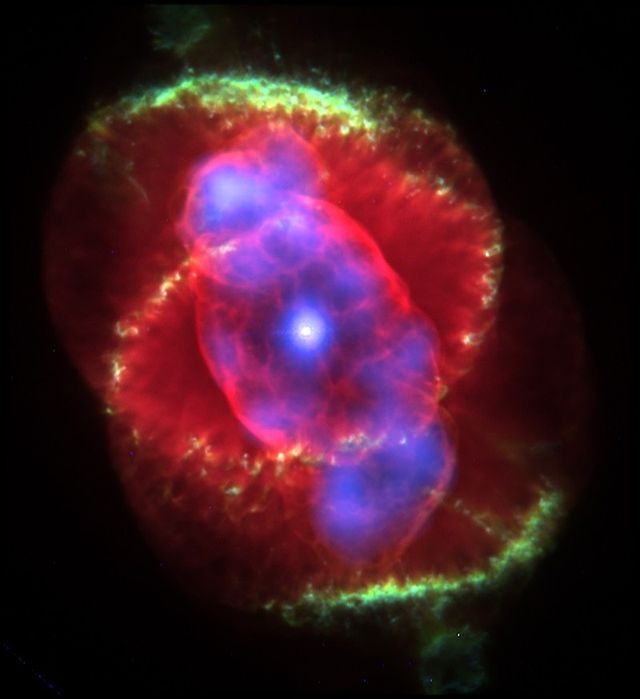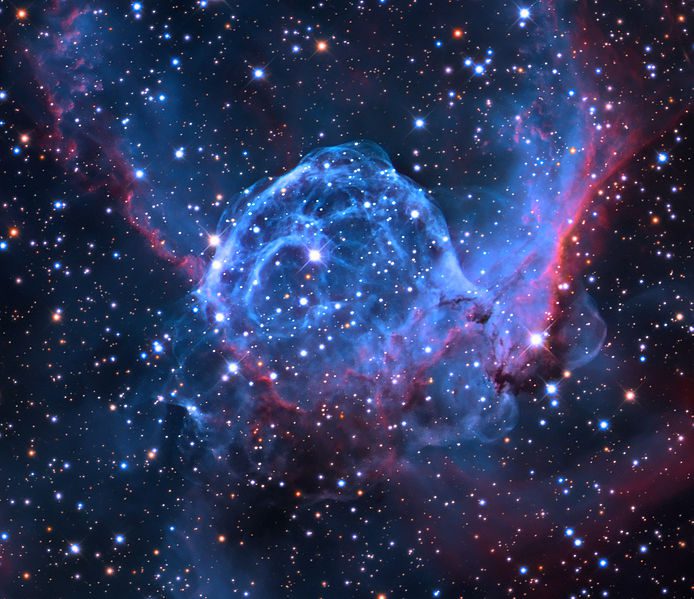
The following went up today on the website of the Interpreter Foundation:
Conference Talks: “The Scale of Creation in Space and Time,” given by John S. Lewis
In this presentation, which was given at the 9 November 2013 Interpreter Symposium on Science and Mormonism: Cosmos, Earth, and Man, the distinguished planetary scientist John S. Lewis, an adult convert to the Church of Jesus Christ of Latter-day Saints, discusses several aspects of the creation stories in scripture for the purpose of distinguishing anachronistic modern reinterpretations from the content of the original vision.

Still more or less on the science front: Recently, a friend not only recommended but generously gave me a copy of Michael Guillen’s Believing is Seeing: A Physicist Explains How Science Shattered His Atheism and Revealed the Necessity of Faith (Carol Stream, IL: Tyndale Refresh, 2021). Dr. Guillen, who grew up in East Los Angeles (not too terribly far from where I myself was raised, although he’s a few years younger) before studying mathematics, physics, and astronomy at UCLA and Cornell, taught physics for eight years at Harvard University before becoming the chief science editor for ABC News.
Herewith, I share some notes inspired by and/or based upon Believing is Seeing. For me, they constitute a hasty and unpolished first pass on this topic:
For many if not most people, about the closest that we can come to certainty in this life is mathematics. I doubt that I’m the only one around who spent a lot of time on such things as geometric proofs. But mathematics appears not to be as certain as we have imagined.
Take the ancient mathematician Euclid (fl. ca. BC 300), for example, and his famous book known as the Elements (Στοιχεῖα), one of the greatest classics in the entire history of mathematical thought.
His treatise, which was not only intensely studied but remained enormously influential for many centuries, rests on the assumption of fully thirty-three axioms — propositions that he cannot prove. Twenty-three of them are definitions. Five each are postulates and “common notions.”
The “common notions” are pretty easily illustrated with simple processes of counting. And they’re quite trivial. But the other axioms, the postulates, are neither trivial nor easily illustrated, although they must be accepted in order to proceed with the development of Euclid’s extraordinary intellectual structure.
Consider, for example, the geometric concept of a “point.” It has no width, no depth, and no length. It’s something, and yet, simultaneously, it’s nothing. Just try to picture it — without length, depth, or breadth.
Or consider logic, surely the most logical of all disciplines! Friedrich Ludwig Gottlob Frege (1848-1925) was a very great German logician, who hoped to derive all of arithmetic from the smallest possible set of axioms. In the first volume of his planned three-volume Grundgesetze der Arithmetik (“The Basic Laws of Arithmetic”), which was published in 1893, he built upon just six axioms. Nine years later, when he was just about to submit the finished manuscript of his second volume, he received a letter, dated 16 June 1902, from a young British mathematician named Bertrand Russell. The letter had identified an error in the first volume. Not a typo, but a fundamental and devastating flaw in Frege’s fifth axiom.
It had to do with “sets.” Guillen offers the example of an entire village of clean-shaven men, including the village barber, who, he says, shaves all and only men who don’t shave themselves. What can we say about the set of all men who shave themselves? Does it include the barber? Is the barber a man who shaves himself? If you answer “Yes, the barber shaves himself,” you have a problem because you’ve just contradicted his claim that he shaves all and only men who don’t shave themselves. If you say “No, the barber doesn’t shave himself,” you have another problem: You’re contradicting the barber’s claim that he shaves all men who don’t shave themselves.
It’s a matter of self-reference. Consider the proposition This statement is false. If it’s true, it’s false. If it’s false, it’s true.
“[L]ogic spins out of control,” comments Guillen, “sucking us into a maelstrom of circular reasoning from which there is no escape.” (110)
“Your discovery of the contradiction has surprised me beyond words,” Frege wrote back to Russell. “And, I should almost like to say, left me thunderstruck, because it has rocked the ground on which I meant to build arithmetic.” (110)
In 1903, Frege proceeded with publication of his second volume, including this mournful comment: “Hardly anything more unfortunate can befall a scientific writer than to have one of the foundations of his edifice shaken after the work is finished. This was the position I was placed in by a letter of Mr. Bertrand Russell, just when the printing of this volume was nearing its completion.” (110)
Frege never published the third volume of his flawed masterpiece, and he died on 26 July 1925. (He is still, however, considered by many the greatest logician after Aristotle.) That same year, David Hilbert, perhaps the greatest of twentieth-century mathematicians, commented that “the present state of affairs where we run up against the paradoxes is intolerable. Just think, the definitions and deductive methods which everyone learns, teaches, and uses in mathematics, the paragon of truth and certitude, lead to absurdities! If mathematical thinking is defective, where are we to find truth and certitude?” (110-111)
Hilbert thought that, with more work, logicians and mathematicians could get beyond the foundational problem of Frege’s fifth axiom. They just needed to be much more careful.
Among those responding to the challenge were Bertrand Russell himself, and his brilliant senior colleague Alfred North Whitehead. In 1910, they published the first volume of a projected three-volume work entitled Principia Mathematica, which was going to put mathematics back on a solid logical footing that was free of contradictions and paradoxes.
It was very well received. Until Kurt Gödel spotting a fundamental and inescapable glitch, not merely in the Principia but in logic itself. A problem that can never be fixed. In essence, Gödel’s theorems said that,
Given any formal system of logic powerful enough to describe all the truths in arithmetic, it will be either incomplete (there will be truths it cannot prove) or inconsistent (it will be infected with paradoxes and therefore totally unreliable). (111)
(Based upon pp. 105-112 of Believing is Seeing; to be continued)

(Wikimedia Commons public domain image)
Here are some interesting links from the world of religion news:
“Escaping that ‘comfort zone’: Press keeps missing obvious religion news at ’22 World Cup”
“NPR comes to hills of Tennessee and sees exactly the religion trends that you would expect”
Have you been hearing about this story out of Nicaragua? “Ortega’s Brutal Catholic Crackdown – Where’s the Outrage?”

Photo by JSchulman (Wikimedia CC public domain image)
But not everything is so very pleasant:
If this horror, plucked while still juicy and fresh from the Christopher Hitchens Memorial “How Religion Poisons Everything” File©, doesn’t turn you vivid red with righteousness indignation, it’s really difficult to imagine what might: “Colombian Red Cross acknowledges partnership with Church in 5-year humanitarian-aid project: Sister Renlund, Sister Zeballos represent the Church at recognition event — and help distribute aid to several dozen families in need”












